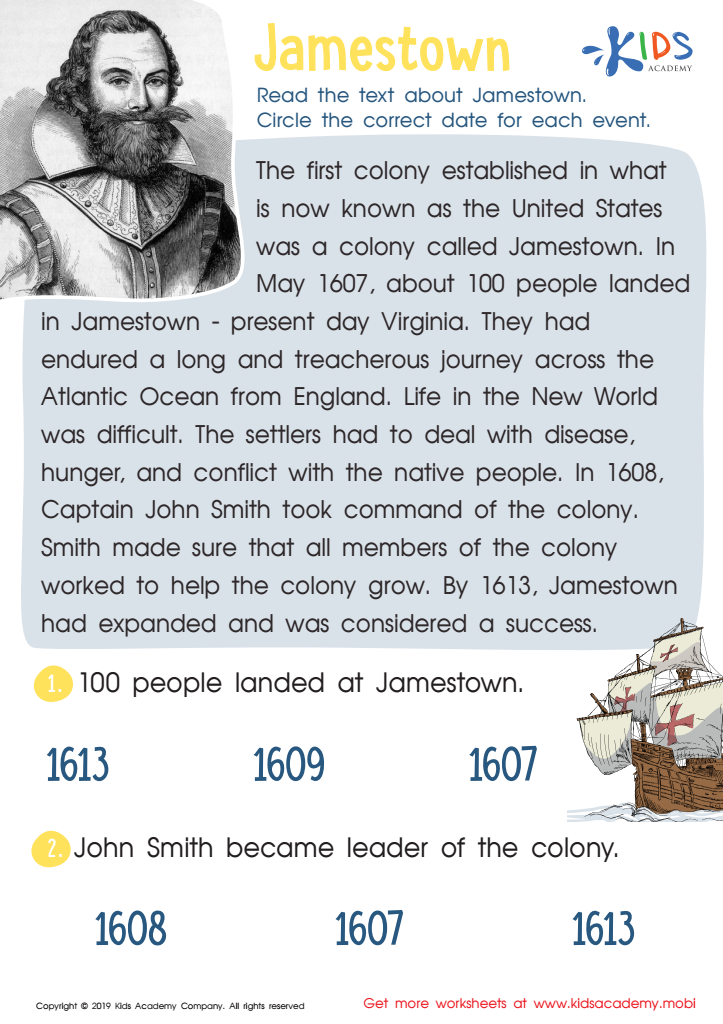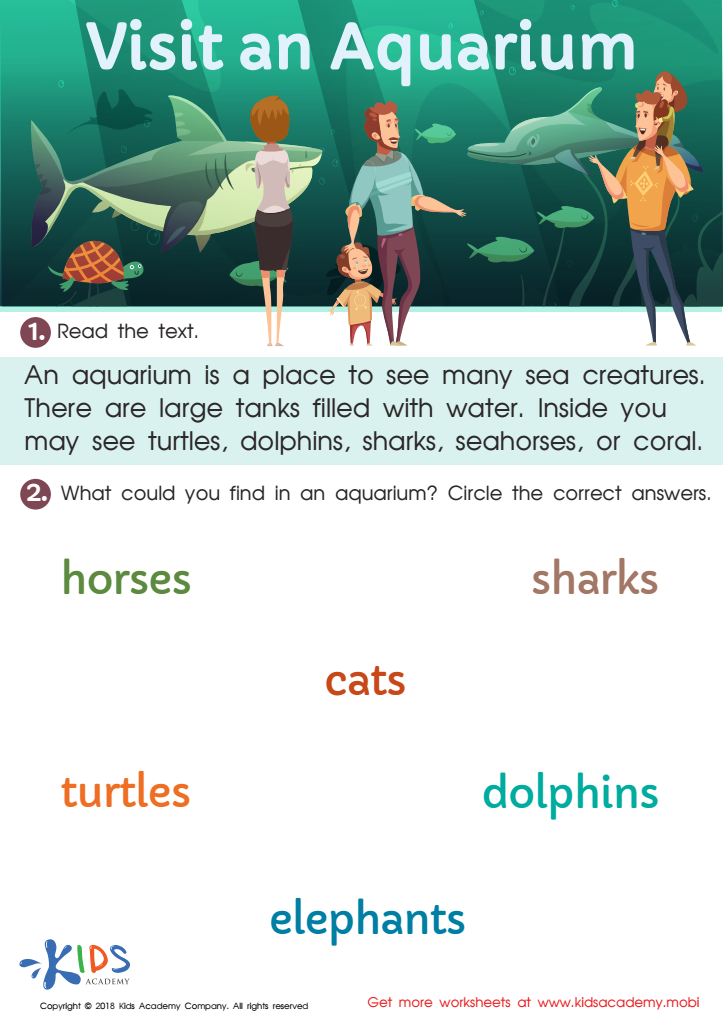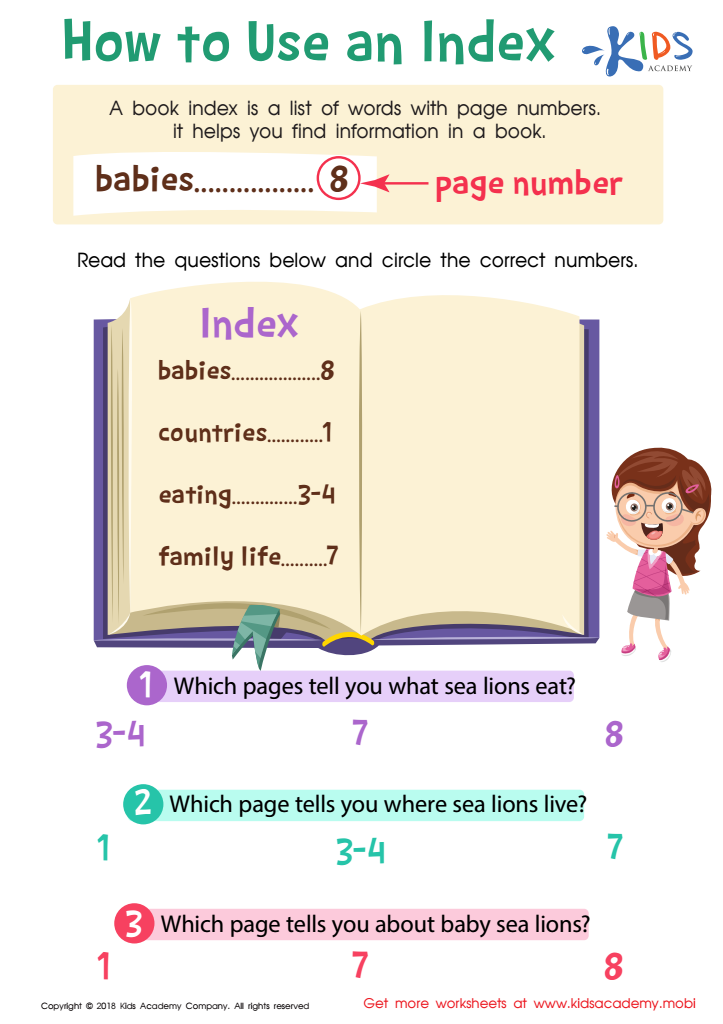Analytical thinking Reading Non-Fiction Worksheets for Ages 5-8
3 filtered results
-
From - To
Unlock the wonders of analytical thinking with our engaging Non-Fiction Reading Worksheets, specially designed for ages 5-8! These worksheets encourage young learners to explore, analyze, and understand non-fiction texts. Your child will develop critical reading skills by interpreting information, making connections, and drawing conclusions. Each activity is tailored to stimulate curiosity and enhance comprehension through thought-provoking questions and real-world themes. Perfect for homeschooling or supplementary learning, our worksheets make reading non-fiction interactive and fun! Foster a love for learning while nurturing essential analytical skills that will benefit your child throughout their educational journey. Download now and spark their imagination!


Jamestown Worksheet


Visit an Aquarium Worksheet


How Use Index Worksheet
Parents and teachers should prioritize analytical thinking skills during non-fiction reading for children aged 5-8 because these skills lay a foundational block for academic and life success. At this age, children are incredibly curious and eager to absorb information. Introducing non-fiction texts allows them to explore real-world topics, helping them make sense of their environment.
Analytical thinking encourages kids to question, compare, and assess information critically. When reading non-fiction, children learn to identify main ideas, recognize supporting details, draw conclusions, and differentiate between fact and opinion. This cognitive process not only enhances their reading comprehension but also promotes a love for discovering new ideas and perspectives.
Moreover, fostering analytical skills early on fosters curiosity and independence in learning. As children engage with various subjects—from science to history—they build the ability to connect the dots across different disciplines. This adaptability is invaluable as they advance through their education and enter a world requiring problem-solving and critical analysis.
In a rapidly evolving, information-rich society, equipping kids with strong analytical skills through non-fiction reading is essential, opening doors to informed decision-making and engaging them in lifelong learning. Therefore, investing time in these areas can yield significant long-term benefits for children’s intellectual growth.

 Assign to My Students
Assign to My Students





















